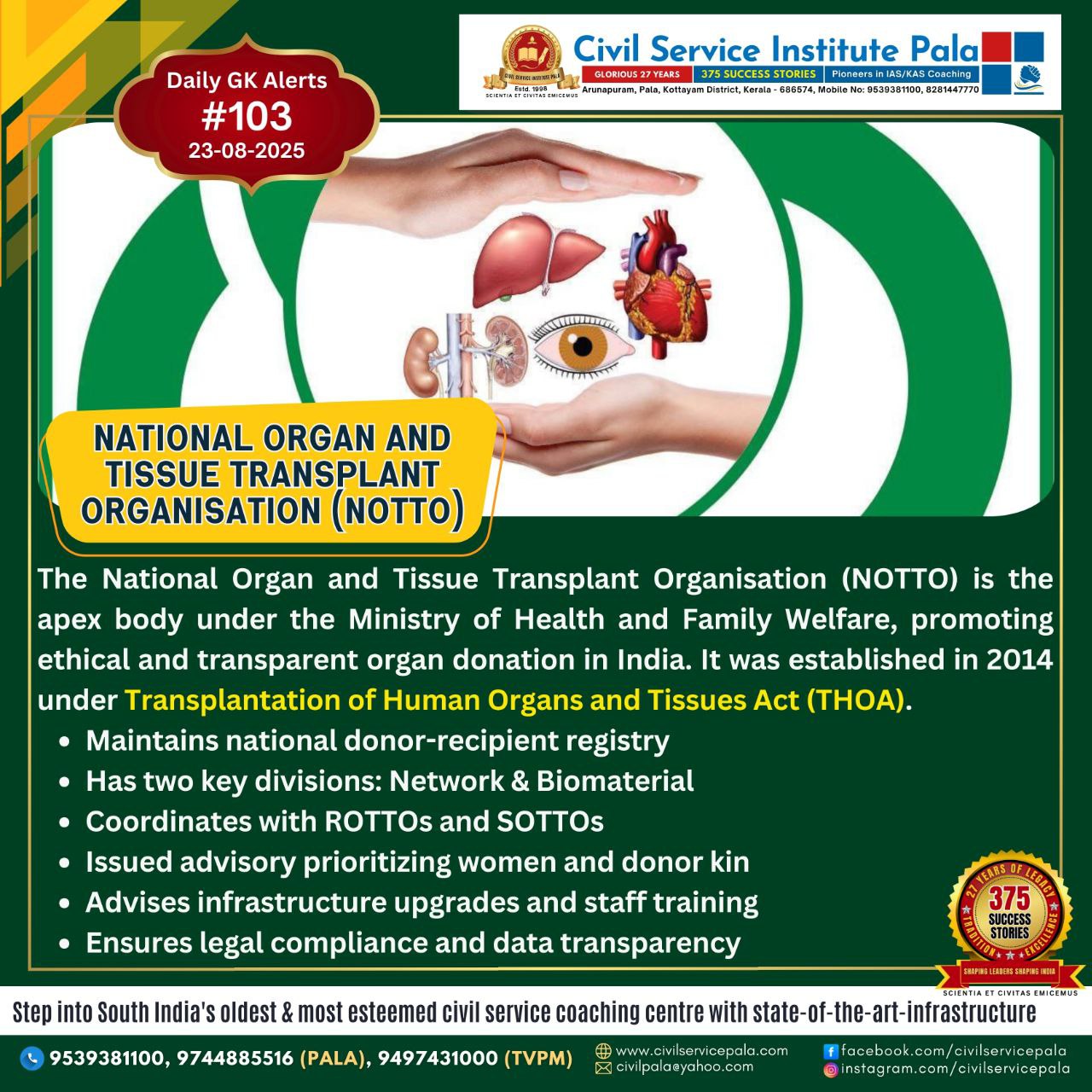
National Organ and Tissue Transplant Organisation (NOTTO)
National Organ and Tissue Transplant Organisation (NOTTO): Promoting Fair and Transparent Organ Donation in India
The National Organ and Tissue Transplant Organisation (NOTTO) is the central government body under the Ministry of Health and Family Welfare. Established in 2014 under the Transplantation of Human Organs and Tissues Act (THOA), NOTTO works to coordinate, promote, and regulate organ and tissue donation and transplantation across India.
Structure and Functions
Headquartered in New Delhi, NOTTO has two main divisions:
1. National Network Division – Maintains a central database of donors and recipients.
2. National Biomaterial Centre – Manages tissue banking of corneas, bones, skin, etc.
It works with regional (ROTTOs) and state (SOTTOs) networks to ensure transparent organ allocation, develop guidelines, train medical staff, and raise public awareness. NOTTO also monitors compliance with legal norms to prevent organ trafficking.
Recent Advisory: Addressing Gender Disparity
To tackle long-standing gender imbalance, NOTTO issued a 10-point advisory giving priority to women patients and female relatives of deceased donors in organ allocation. Hospitals must now add extra points to these groups during allocation. This step promotes fairness and encourages more families to donate organs.
Improving Infrastructure and Data Management
States have been advised to:
* Create permanent transplant coordinator roles in hospitals.
* Train emergency staff to identify potential donors early.
* Develop trauma centres and medical colleges as retrieval centres.
All transplant centres must submit detailed donor and recipient data to the national registry or face legal action.
Conclusion
NOTTO plays a key role in ensuring ethical, transparent, and efficient organ transplantation in India. With new measures to support women and donor families, it is helping build a fairer and more inclusive healthcare system.



